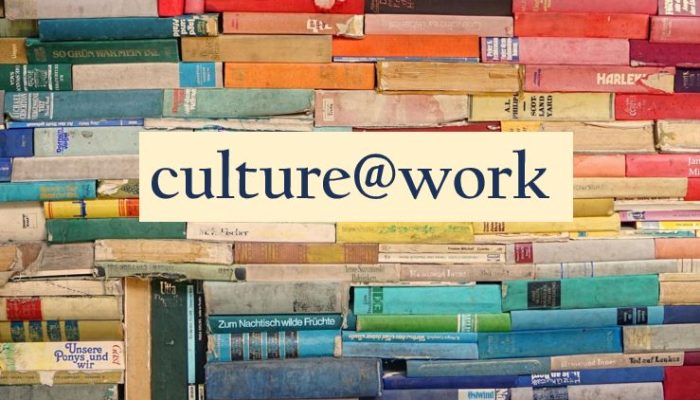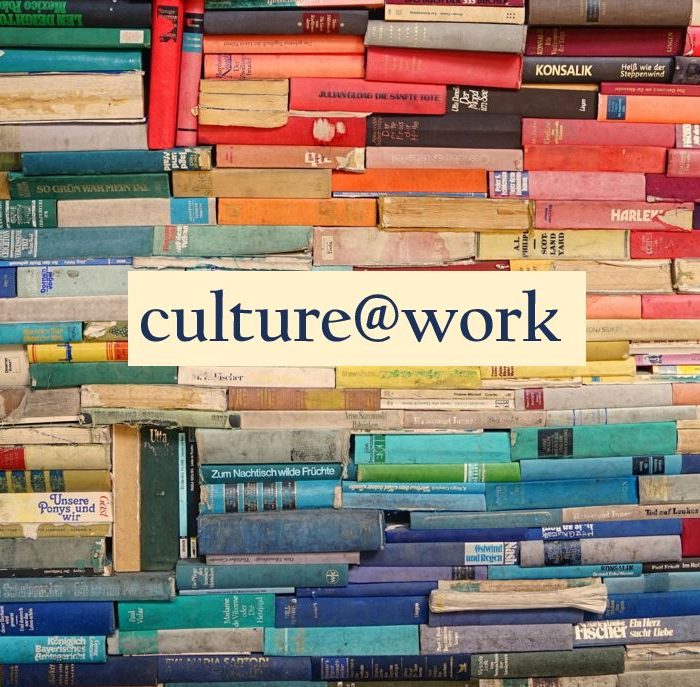Ling Lam is an assistant department head at the Toronto Reference Library.

Cultural diversity and inclusion in the workplace
Welcome to culture@work, a column brought to you by the Cultural Diversity and Inclusion Committee. We plan to showcase some of the diversity in librarianship across Ontario. We hope that through highlighting the experiences of diverse librarians, you will get to know them, be inspired, and become more informed about issues of diversity in librarianship across the province.

Name: Valentina Ly
Title: Research Assistant and Information Specialist
1. Where do you work?
I consciously choose to split my time between two part-time roles at Sinai Health System. As a research assistant at Mount Sinai Hospital, I work in a non-traditional librarian role where I perform literature searches, compile data, and contribute to health economics and policy papers. The rest of the time, I work as an information specialist at the patient and family library at Bridgepoint Active Healthcare, where I get to interact with patients and help them with their health information and entertainment needs.
The small library team at Sinai Health System is a culturally diverse group; four out of the six library staff are visible minorities. I know that many libraries are lacking a diverse workforce, so I feel especially fortunate to be in a workplace that hires staff from all backgrounds.
2. Tell me a little about yourself. Why have you chosen to work in libraries? How did you end up working in libraries?
I started my career in medical genetics research where funding for positions is even more precarious than librarianship (if you can believe it!). I had no prior library work experience, but I sought out an MLIS because I’ve always met librarians and library staff who loved their jobs. Also, I realized that I could continue to utilize my research skills and health science knowledge as a librarian.
3. Tell us about cultural diversity and inclusion. What do you think libraries can do to be more inclusive? Have you faced any barriers? Why do you think diversity is important for our library communities?
I’ve been focused on how libraries can be inclusive through their workforce. Recently, I found out that many U.S. institutions create diversity fellowship positions at their libraries for early-career librarians to get two years of experience. This is something I’d like to see in Canada to encourage and promote diversity, equity, and inclusion in the profession. This would help librarians of colour to stay in the profession, and hopefully, the domino effect is that librarianship becomes a diverse profession that is reflective of the community it serves.
As a new MLIS graduate, I experienced some of the difficulties of breaking into the workforce, but I felt as though it was my inexperience holding me back. What really helped was getting a mentor who looked over my applications and who really encouraged me throughout the job-searching process. While this mentor was not a librarian of colour, she was an ally, and I truly appreciate her efforts to support my career in health librarianship. I hope to be able to provide the same encouragement and mentorship to new MLIS graduates once I’ve gained some more experience in the field.
4. What continues to inspire you on the job/in your career?
There are very few librarians of colour, and I feel a sense of duty to be active in the profession to ensure our voices are part of the discussion.
In the first year after graduating, I joined OLA’s Cultural Diversity and Inclusion Committee and the Visible Minority Librarians of Canada Network, groups which have provided great opportunities to contribute to the profession and meet and be inspired by librarians from different backgrounds. Both of these organizations put on mentorship programs for librarians, programs which I encourage all librarians to participate in.
5. What piece of advice would you give to diverse librarians beginning their career as well as to those librarians in their mid-career?
I am definitely feeling that eagerness and enthusiasm to create positive change. I hope new grads don’t lose that feeling as they enter the workforce. Get yourself a mentor to help support you because they can help get you through some of the discouraging aspects of early-career librarianship. Mid-career librarians, I highly encourage you to mentor and support new librarians and librarians who are wanting to move into leadership roles.
6. What work do you think librarians in Ontario need to do to work towards positive social change?
Be active within the profession. Mentor a new MLIS graduate or an early-career librarian. Based on the feedback from a mentorship program I help coordinate, the mentees found the support from the mentors much more helpful than the mentors themselves had perceived it to be. That means that as a mentor you might not feel as though you’re helping out much, but you are actually making an impact.
The OLA Cultural Diversity & Inclusion Task Force mandate is to initiate, advise and mobilize support for appropriate action plans related to issues of cultural diversity in libraries within Ontario including recruitment, advancement and retention of underrepresented groups in libraries.
